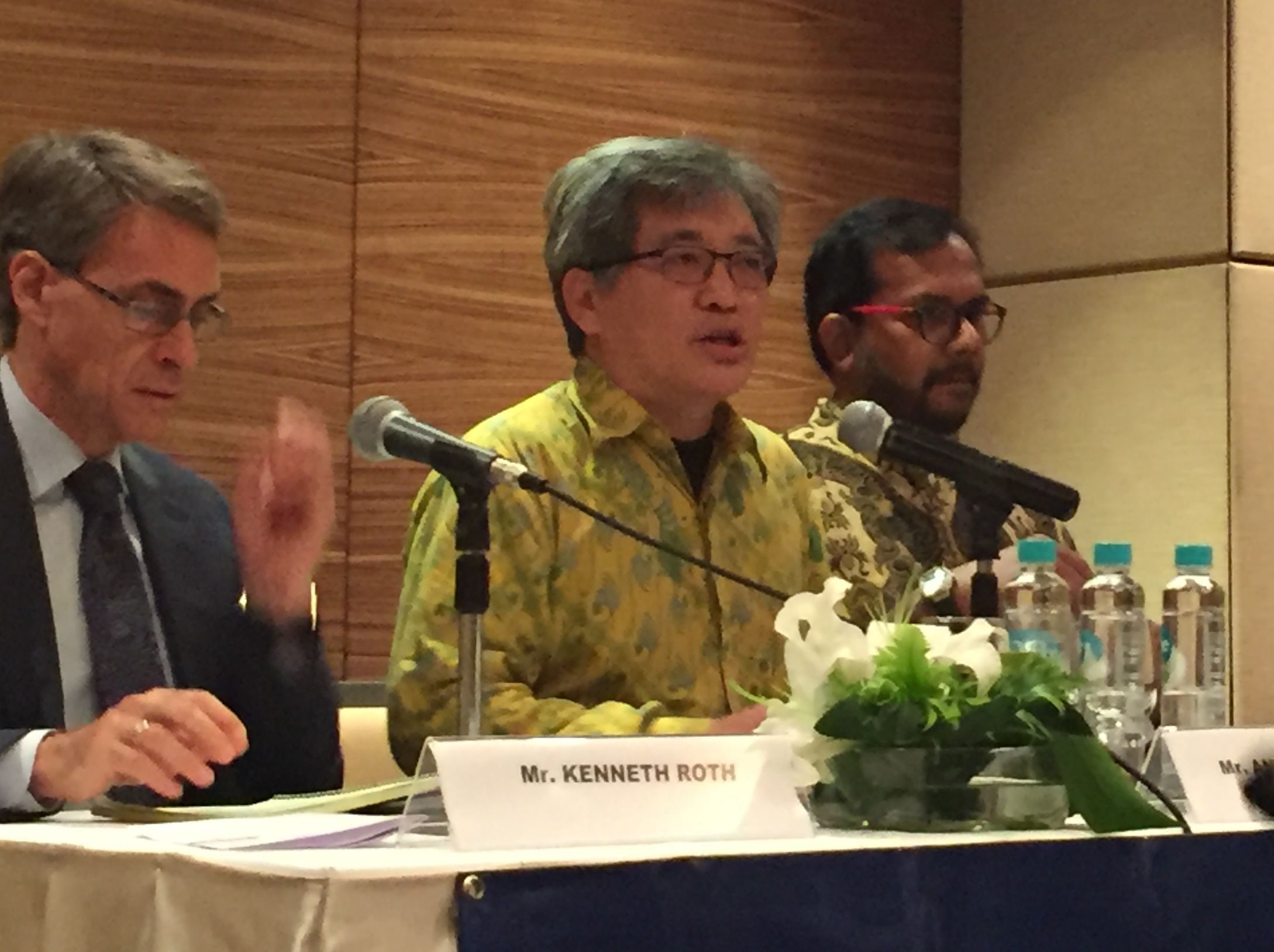SUMMARY
This is AI generated summarization, which may have errors. For context, always refer to the full article.

JAKARTA, Indonesia – It’s about time Indonesia tells the truth about the 1965 massacre.
This was the opinion of Human Rights Watch (HRW) Executive Director Kenneth Roth, which he shared in a press conference on Wednesday, April 13.
“After 50 years, it’s still not clear how many people is aware of the tragedy,” he said.
“To apologize or give a compensation is alright, but what really matters is when to do this, particular before or after the government tells the truth,” he added.
At least 500,000 people died in the purge across the Southeast Asian archipelago that started after then General Suharto put down a coup on October 1, 1965. (READ: ‘Indonesia must do more to provide justice for the 1960s mass killing victims’)
Authorities blamed the attempted coup on the Indonesian Communist Party (PKI).
Security forces, supported by local groups, rampaged through the country massacring hundreds of thousands of people suspected of even weak links to the PKI, and jailing scores of others.
The massacres, sometimes referred to as the Indonesian Genocide, targeted communists, ethnic Chinese and alleged left-wingers. It began as an anti-communist purge initially, starting in the capital, Jakarta, and spread to Central and East Java and, later, Bali.
Roth said US President Barack Obama should be part of the efforts to tell the truth of history. “It’s time for the United States to come clean about what it knew about Indonesia Killings of 1965-1966,” he said, adding Obama has acknowledged darker parts of the USA’s past during his presidency.
“President Obama has declassified documents related to Argentina’s Dirty War,” he said.
Haris Azhar, a representative of the Commission for Missing Persons and Victims of Violence (Kontras), also expressed his disappointment with the efforts of the Indonesian government regarding human rights.
“There’s some progress, but not enough,” Azhar said. He noted that there has been no significant changes since President Joko Widodo became president.
Symposium
HRW’s statements come a week before the Presidential Advisory Board (Wantimpres) plans to host a symposium focused on the 1965 massacres in Indonesia. It remains unknown however, what will be discussed or what information will be disclosed.
The symposium will be attended by approximately 200 participants including academics,human rights leaders, and victims of human rights violations. Political party representatives and civil society organizations will also participate.
But no representative from the military is on the agenda so far. (READ: Activists put Indonesian gov’t on trial for 1960s mass killings)
Azhar said he thinks the symposium will not be able to address the full scope of the government’s human rights violations however, especially since more “political violence happened after the tragedy, not only under the communist party.”
“For example, the political violence that took place in Aceh, East Timor and Papua for 30 years under the military regime,” he said.
“Those, which unfortunately will not be addressed nor discussed in the symposium.”
Agus Widjojo, a retired 3-star General who is the chairman of the symposium, said that the symposium is not meant to decide who is wrong or who is right, but to discuss lessons from the event
“We want to listen to the the voice of the victims and the witnesses. We will try to find out what happened at that time,” he said in a separate press conference also on Wednesday. “This is to ensure we will not repeat the tragedy in the future.”
“We have invited representatives of the military, and we are expecting a positive response,” Agus told Rappler.
He believed that the military will play an important role as a witness, to present how the situation was in the period before the massacres.
What would you like the symposium to discuss? Let us know in the comments below. – Rappler.com
Add a comment
How does this make you feel?
There are no comments yet. Add your comment to start the conversation.